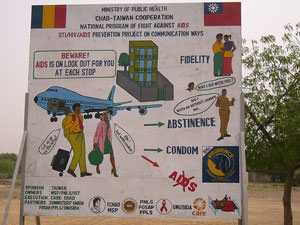New Hope in the Fight Against AIDS
World AIDS Day turns 20 today, and while we still don't have a vaccine, researchers continue to make lifesaving breakthroughs. A team at the World Health Organization in Geneva recently came up with a "thought experiment" that, according to a mathematical model, could end the AIDS epidemic in Africa in only a decade.
World AIDS Day turns 20 today, and while we still don’t have a vaccine, researchers continue to make lifesaving breakthroughs. A team at the World Health Organization in Geneva recently came up with a “thought experiment” that, according to a mathematical model, could end the AIDS epidemic in Africa in only a decade.
The researchers were quick to point out the shortcomings of their work and warn against unwarranted optimism, but their efforts show that despite all the setbacks, big ideas have the potential to save lives.
Roughly two-thirds of the world’s estimated 33 million people with HIV live in sub-Saharan Africa.
Your support matters…Washington Post:
While nobody is seriously espousing that approach, the “thought experiment” outlined this week in the Lancet journal emphasizes the usefulness of antiretroviral drugs as tools for preventing the spread of HIV infection as well as treating it.
The power of AIDS drugs to dramatically slow the epidemic is the consequence of two well-established facts.
The first is that the amount of virus circulating in the bloodstream is the most important factor determining whether an infected person transmits the disease to another during a high-risk encounter. The second is that AIDS drugs can lower this “viral load” in the bloodstream to one-millionth of what it is without treatment.
Independent journalism is under threat and overshadowed by heavily funded mainstream media.
You can help level the playing field. Become a member.
Your tax-deductible contribution keeps us digging beneath the headlines to give you thought-provoking, investigative reporting and analysis that unearths what's really happening- without compromise.
Give today to support our courageous, independent journalists.






You need to be a supporter to comment.
There are currently no responses to this article.
Be the first to respond.